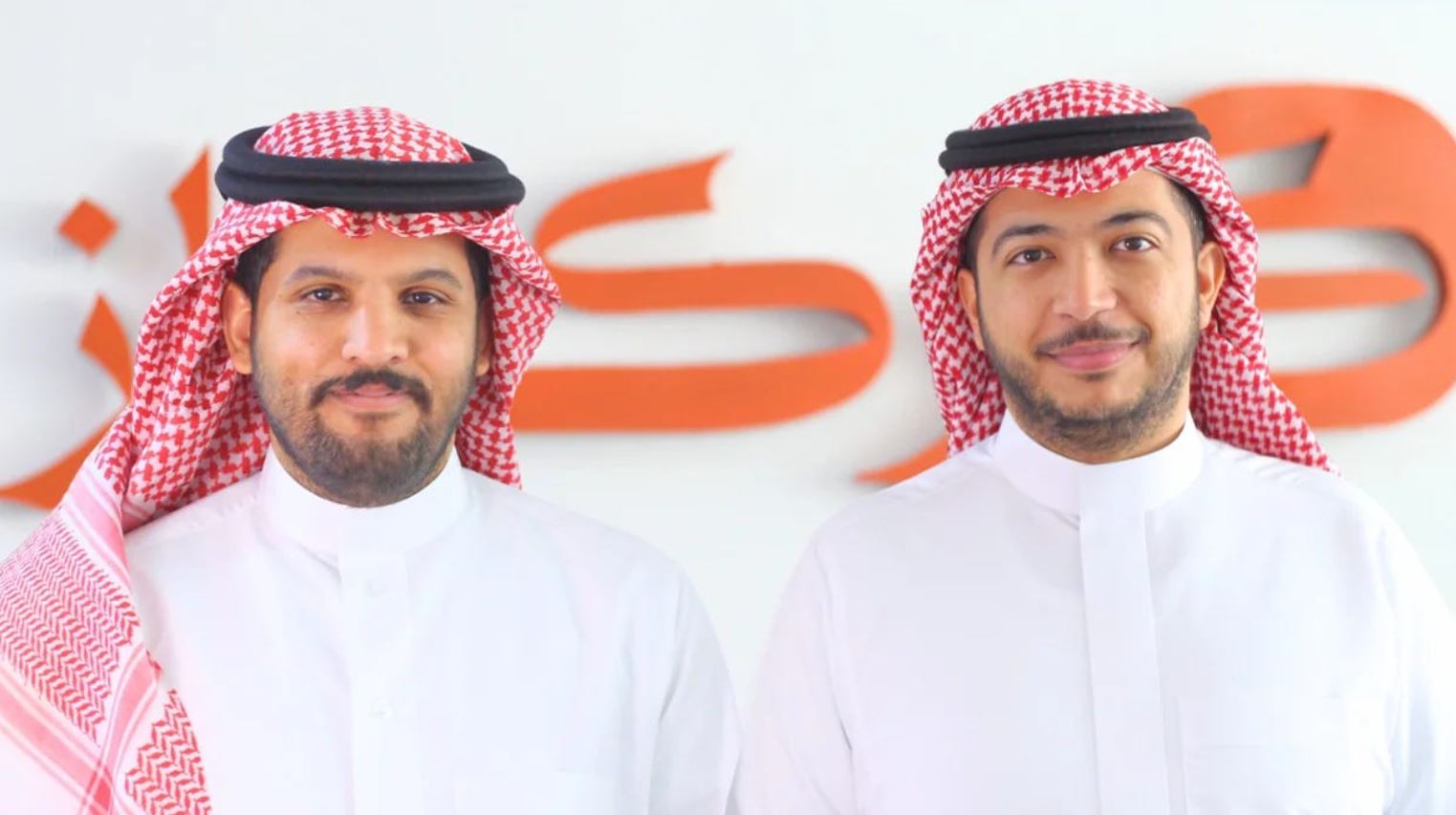A New Era for Service-Based SMEs
The Middle East and North Africa (MENA) region is undergoing a sweeping digital transformation, but much of the attention in recent years has been on e-commerce and fintech. Service-based businesses fitness centers, salons, clinics, and training institutes have often remained on the sidelines of this digital revolution. These enterprises still rely heavily on manual processes, WhatsApp messages, spreadsheets, and fragmented tools, creating inefficiencies that limit scalability and customer satisfaction. Rekaz, a Saudi startup, has emerged as a bold solution to this overlooked challenge. With a comprehensive platform designed to consolidate bookings, memberships, payments, and customer communications, Rekaz is creating what many see as the “operating system” for service businesses. Its recent $5 million funding round highlights not only investor confidence but also the strategic importance of digitizing this sector to unlock growth across the region.
The Founders’ Journey and Inspiration
The story of Rekaz began with its founders, Abdulrahman Alomran and Abdulaziz Alkharashi, who identified a fundamental gap in the market. Despite the growing emphasis on digital transformation across Saudi Arabia, service businesses were struggling to keep pace because the tools available were either too complex, too expensive, or not adapted to regional needs. Many SMEs were losing customers and revenue simply because they lacked the digital infrastructure to streamline operations. Alomran and Alkharashi envisioned Rekaz as a one-stop solution that could provide these businesses with an affordable, localized, and scalable platform. Much like Shopify redefined online retail globally, Rekaz aims to become the backbone of service-based industries across MENA.
How Rekaz Works: Simplifying Business in One Dashboard
At the heart of Rekaz’s success is its ability to simplify business management into a single, intuitive dashboard. Instead of juggling multiple disconnected systems, business owners can now automate bookings with real-time calendars that reduce scheduling errors and no-shows. Membership and subscription packages can be managed seamlessly, allowing gyms, salons, and wellness centers to offer flexible pricing models and loyalty programs. Payments are streamlined through integrated cashless systems that support regional payment gateways, making it easier for SMEs to embrace digital transactions without complex integrations.
Beyond payments and scheduling, Rekaz’s platform also includes customer relationship management features, enabling businesses to build stronger connections with their clients through targeted communication, feedback tools, and reminders. The system doesn’t just manage transactions it generates insights through AI-driven analytics, helping owners forecast demand, understand customer behavior, and optimize pricing strategies. For many SMEs, this is a game-changer: a previously inaccessible layer of intelligence that allows them to compete with larger, more resource-rich competitors.
Strategic Importance for Saudi Vision 2030
Rekaz’s trajectory aligns closely with Saudi Arabia’s Vision 2030, which emphasizes economic diversification, SME empowerment, and technological innovation. SMEs already contribute around 30% of the Kingdom’s GDP, and the government has set a target of raising this to 35% by 2030. Rekaz directly supports this ambition by equipping SMEs with tools that enhance their productivity, expand their reach, and accelerate their growth.
This alignment has broader implications. By helping businesses digitize, Rekaz is contributing to job creation, as SMEs that adopt efficient systems are better positioned to expand and hire. The platform also promotes financial inclusion by nudging traditionally cash-heavy sectors toward digital payments. Finally, Rekaz embodies the Vision 2030 ethos of building a knowledge-based economy, where technology plays a central role in reducing inefficiencies and unlocking new opportunities.
Market Potential in MENA
The opportunity for Rekaz extends well beyond Saudi Arabia. The MENA region is home to more than 23 million SMEs, many of which operate in the service economy. Market research suggests that service management software in the region already represents a billion-dollar industry and is growing rapidly as younger generations demand digital-first experiences. For gyms, salons, clinics, and training centers, digital adoption is no longer optional it has become a competitive necessity.
Rekaz is strategically positioned to expand across the GCC and North Africa, where the same challenges of operational inefficiency, fragmented systems, and customer churn exist. The UAE, Egypt, Kuwait, and Jordan, in particular, offer fertile ground for growth, as their governments also push for SME development as part of national economic strategies. By tailoring its platform to local languages, cultural expectations, and payment systems, Rekaz has the potential to become the default solution for service businesses across the region.
Investor Confidence and Growth Strategy
The $5 million raised in Rekaz’s latest round, led by COTU Ventures with participation from Impact46, Shorooq Partners, and Numrah Capital, reflects deep investor confidence in both the business model and the founding team. For investors, Rekaz represents more than just a SaaS company it signals the rise of SME digitization as a service, a sector with immense untapped potential in MENA.
With this funding, Rekaz plans to scale its operations aggressively. A key focus will be enhancing its AI-powered features, ensuring that SMEs can automate repetitive tasks and gain predictive insights into customer behavior. Another priority is improving onboarding processes, making it easier for non-digital businesses to adopt the platform without technical hurdles. Expansion into other GCC and North African markets is also a central part of the strategy, supported by new fintech integrations that will introduce embedded lending and financial tools, enabling SMEs to access working capital directly through Rekaz’s ecosystem.
Competitive Landscape and Differentiation
Globally, service management platforms such as Mindbody, Fresha, and Square have established themselves as leading players in streamlining appointments, payments, and customer interactions for service-based businesses. However, these platforms are often designed with Western markets in mind and do not fully cater to the cultural, linguistic, and regulatory landscapes of MENA. For example, global providers may lack robust Arabic language interfaces, may not seamlessly integrate with local payment gateways such as Mada or STC Pay in Saudi Arabia, and may fail to meet the specific compliance and taxation frameworks that SMEs in the region must navigate. This gap has created an opportunity for Rekaz to step in with a localized platform that addresses these unmet needs directly. Rekaz’s differentiation lies in its ability to blend global best practices with deep regional insight. By providing full Arabic language support, the platform ensures that business owners, staff, and customers can engage in their preferred language without friction. The integration with regional fintech solutions also enhances trust, as SMEs are more comfortable using payment systems they and their customers already rely on. Additionally, Rekaz is closely aligned with local data regulations and government mandates, making it a safer choice for businesses that are cautious about compliance risks.
Beyond compliance and payments, Rekaz’s localization extends to user behavior and business practices unique to MENA. For instance, cultural preferences around appointment scheduling, customer loyalty, and communication styles are integrated into the platform’s design. This makes the system intuitive and relatable for SME owners, reducing the learning curve that often discourages adoption of foreign platforms. By positioning itself as a homegrown solution that understands the region, Rekaz is not just competing with international players—it is building trust and loyalty among SMEs who feel their needs have long been overlooked. In this way, Rekaz is more than a service management platform; it is establishing itself as a regional category leader. By offering global-level sophistication while staying deeply rooted in local realities, Rekaz creates a compelling value proposition that few international competitors can easily replicate. This advantage places the company in a strong position to defend its market share even as global SaaS providers begin eyeing the region more aggressively.
Risks and Challenges Ahead
Despite its strong positioning and investor backing, Rekaz faces a set of challenges that could influence its growth trajectory. One of the most pressing hurdles is market adoption. Many SMEs in MENA are still in the early stages of digital transformation, relying on informal methods such as handwritten ledgers, WhatsApp bookings, or cash transactions. Convincing these businesses to adopt a new digital platform even one tailored to their needs requires significant effort in education, trust-building, and demonstrating clear return on investment. The psychological and cultural barriers to change can sometimes be as strong as the technological ones, and Rekaz will need to invest heavily in outreach, onboarding, and training programs to overcome these barriers.
Another challenge comes from the increasingly competitive landscape. As the MENA startup ecosystem matures and digitization accelerates, international SaaS providers are beginning to recognize the region’s potential. Larger players with deeper pockets could enter the market with aggressive pricing, advanced features, or partnerships with global payment providers, creating competitive pressure. Rekaz will need to continue innovating particularly around AI-driven insights, localized fintech integrations, and sector-specific solutions—to stay ahead of these well-capitalized rivals. Operationally, scaling at speed introduces risks of its own. Ensuring platform reliability, data security, and customer support quality becomes more challenging as Rekaz expands across multiple countries with differing regulatory environments. A single lapse in uptime or a security breach could erode the trust Rekaz has worked hard to build. Maintaining consistent quality while rapidly expanding its user base will require robust internal systems, strong governance, and continual investment in infrastructure.
Moreover, SMEs themselves are evolving in their expectations. Many service businesses no longer seek just basic booking and payment solutions they increasingly demand integrated marketing tools, customer retention programs, embedded financing options, and analytics that are industry-specific. If Rekaz does not keep pace with these evolving demands, it risks being seen as a basic operational tool rather than a comprehensive growth partner. Expanding its product suite to include embedded financial services, digital marketing solutions, and deeper analytics could be critical to maintaining relevance and long-term value. In essence, Rekaz’s journey ahead will be shaped by its ability to balance growth with innovation and reliability. The challenges are real, but so is the opportunity. If Rekaz can continue to innovate while building strong trust with SMEs, it could not only weather these challenges but also emerge as one of the defining success stories of the MENA startup ecosystem
Future Outlook: Toward a Service Economy Revolution
Looking ahead, Rekaz’s ambitions go far beyond being a SaaS provider. The company envisions itself as an enabler of the broader service economy, creating a digital ecosystem where SMEs, suppliers, customers, and financial institutions interact seamlessly. By building this ecosystem, Rekaz could evolve into a marketplace that not only supports business operations but also facilitates financing, advertising, and customer loyalty programs.
If successful, Rekaz could trigger a service economy revolution in the MENA region, fundamentally changing how millions of people consume and deliver services. For SMEs, this means greater efficiency, access to growth capital, and a stronger competitive position. For the region as a whole, it represents a step toward building sustainable, diversified economies driven by innovation and entrepreneurship.
Related Blogs : https://arabworldleaders.com/







